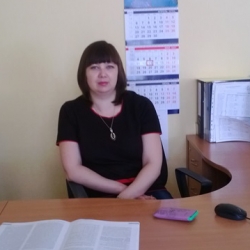

Types of pronouns
- Personal Pronouns
- Demonstrative Pronouns
- Interrogative Pronouns
- Possessive Pronouns
- Relative Pronouns
- Reflexive Pronouns
- Intensive Pronouns
- Reciprocal Pronouns
- Indefinite Pronouns

Personal Pronouns
Personal pronouns represent people or things.
subjective
objective
I - Я
Me - Меня, мне, мною, обо мне
You - Ты, вы
You - тебя, тебе, тобой, о тебе, вас, вам, вами, о вас
He - Он
Him – его, него, ему, о нем
She - Она
Her – ее, нее, ей, о ней
It - Он, она, оно
It – его, него, ему, о нем
We - Мы
Us – нас, нам, нами, о нас
They - Они
Them – их, них, им, о них

Example sentences:
- He plays the guitar .
- We are going home.
- I am doing this for you .
- Jack was there before us .

Demonstrative Pronouns
"Demonstrative" means showing, making something clear.
Examples :
This is the report I want.
That is a big ship.
He wanted those , but decided to compromise on these .
This - это
These - эти
That - то
Those - те

Interrogative Pronouns
Interrogative pronouns are used to ask questions.
Who
Кто
Whom
Кого
Which
What
Который
Что
Whose
Чей, чья, чье
Whoever
Кто бы ни, любой
Whatever
Что бы ни, что угодно, любой
Whichever
Какой угодно, какой бы
Whomever
Кто бы ни, любой

Example sentences:
- Who is your father?
- Whom did you speak to?
- Which bag did you buy?
- What are my options?
- Whose cat is she holding?
- Which dog is yours?

Possessive Pronouns
" Possessive" means "showing ownership.«
Example sentences:
- The prize will be his .
- This place is theirs .
Mine
Yours
Моя, мое, мой
Твоя, твое, твой, ваша, ваш, ваше
His
Его
Hers
Ее
Ours
Наш, наша, наше
Theirs
Их

Relative Pronouns
"Relative" means "connected with something."
Relative pronouns are pronouns that link different parts of a sentence.
The relative pronouns are :
who, whom, whose, which,
that, what, whatever,
whoever, whomever,
whichever

- Examples sentences: The girl who called yesterday came to see you.
- The teacher whom you wrote has answered your questions.
- My husband, whose friends you've just met, has a birthday party.
- I really liked the book that you gave me.
- The winner, who was very excited, received her prize.
- We can't tell you what you should do.
- She will be happy with whatever you give her.
- Whoever thinks that is wrong.

Reflexive Pronouns
Reflexive pronouns show that the action affects the person who performs the action. Reflexive pronouns end in "-self" (singular) or "-selves" (plural).
The reflexive pronouns are:
myself, yourself, himself,
herself, itself, ourselves,
themselves.

Example sentences:
- He cut himself while shaving.
- I sent myself to bed.
- He could hurt himself !
- We must help ourselves .
- She trusts herself .

Intensive Pronouns
An intensive pronoun is a pronoun used for emphasis. In other words, intensive pronouns emphasize the subject of the sentence. They are written exactly the same way as the reflexive pronouns, but their function is different.
Example sentences :
- I myself baked the cake.
- The queen herself recommended
this restaurant.
- Have you yourself been there?

Reciprocal Pronouns
"Reciprocal" means that two people or groups do the same thing to each other. They treat each other in the same way. There are two reciprocal pronouns in English: Each other and one another .
Example sentences :
- The cat and the dog like each other .
- We must stop fighting one another .

Indefinite Pronouns
Indefinite pronouns are pronouns that do not refer to any specific person or thing. Examples: Anything, everybody, another, each, few, many, none, some, all, any, anybody, anyone, everyone, everything, no one, nobody, nothing, none, other, others, several, somebody, someone, something, most, enough, little, more, both, either, neither, one, much, such .

Example sentences :
- Do you remember anything ?
- Everybody wanted to go home.
- That sandwich was delicious. Can I have another ?
- When the kids come back, let's give each a small gift.
- Many have died during the war.
- She is loved by many .
- He got all the pens, and I got none .











































